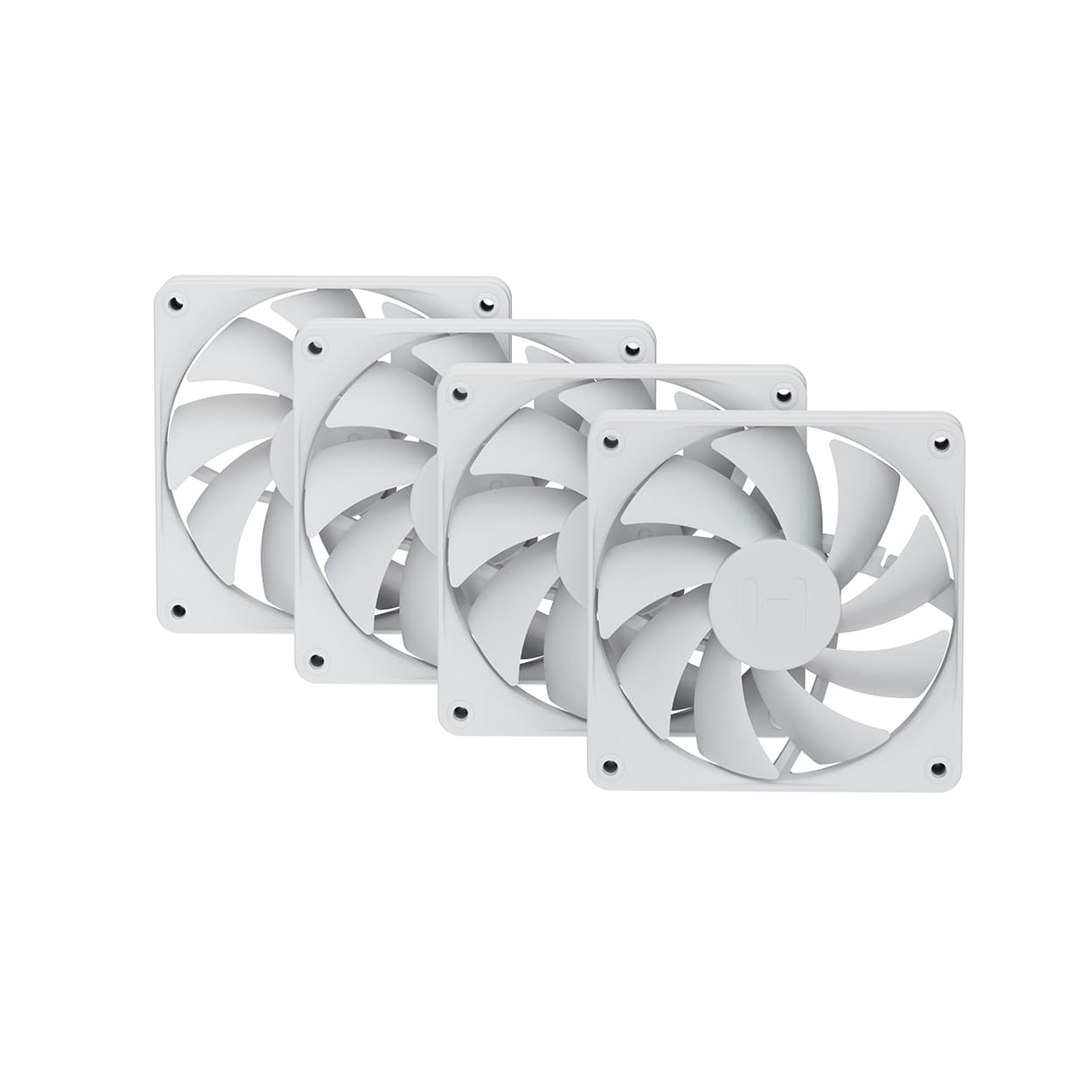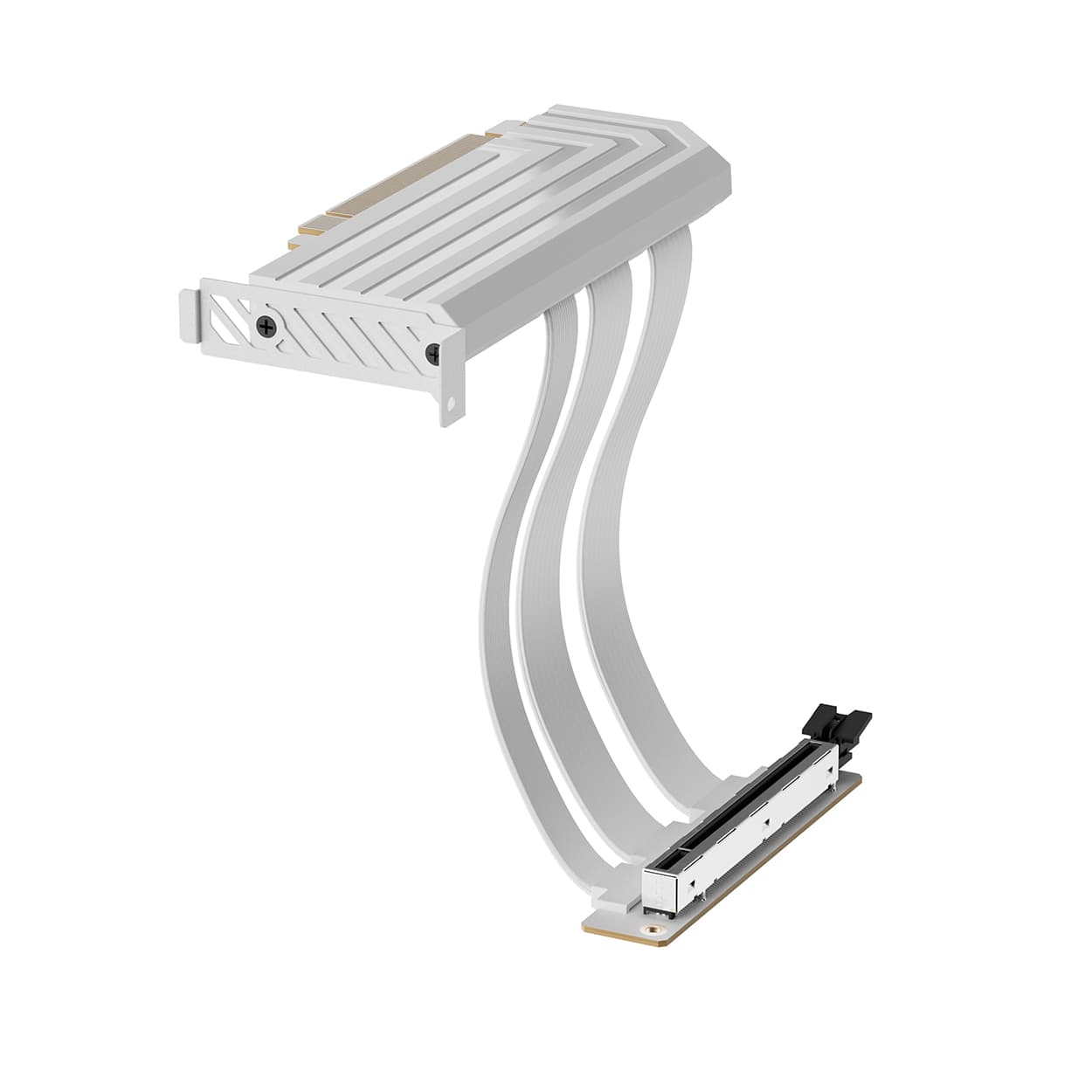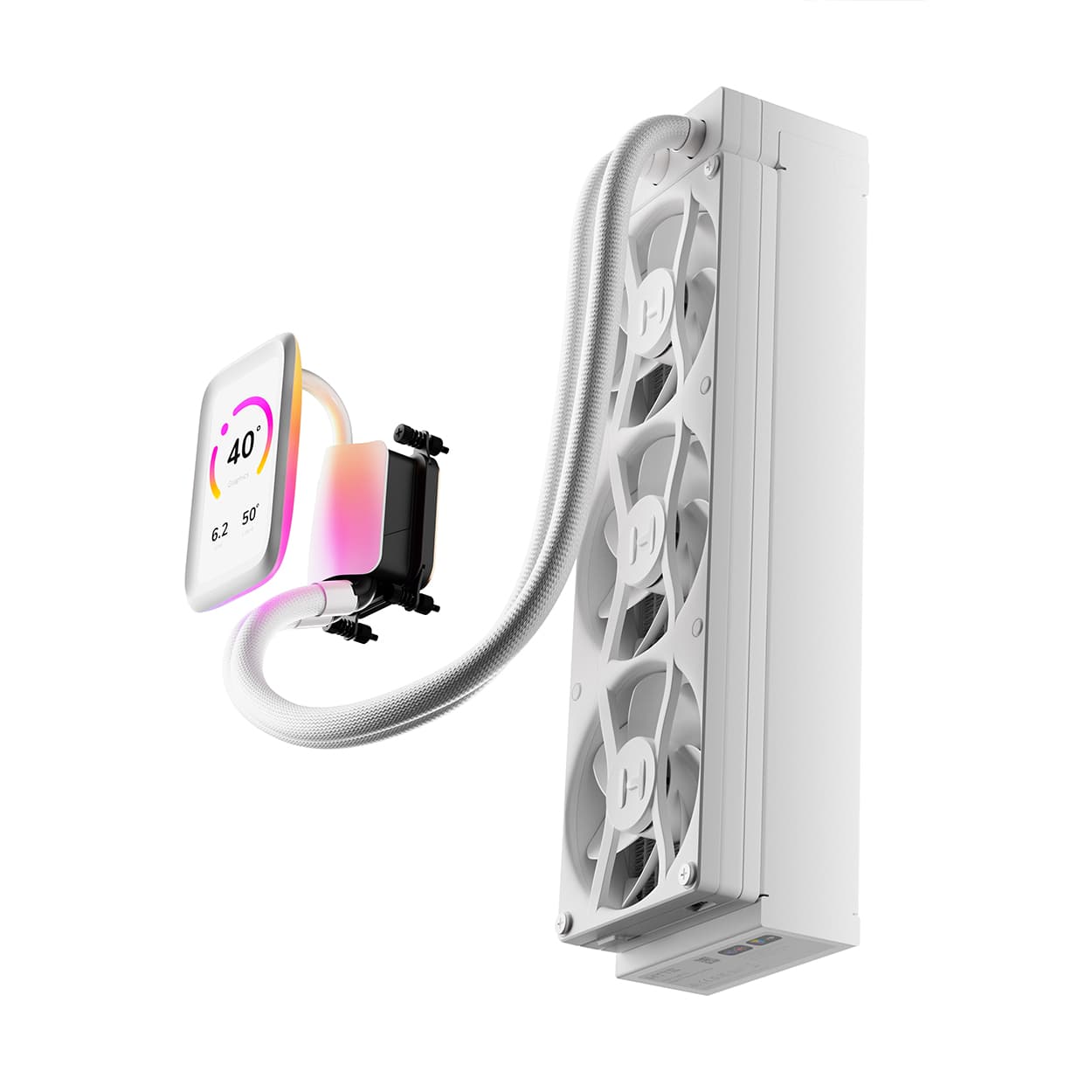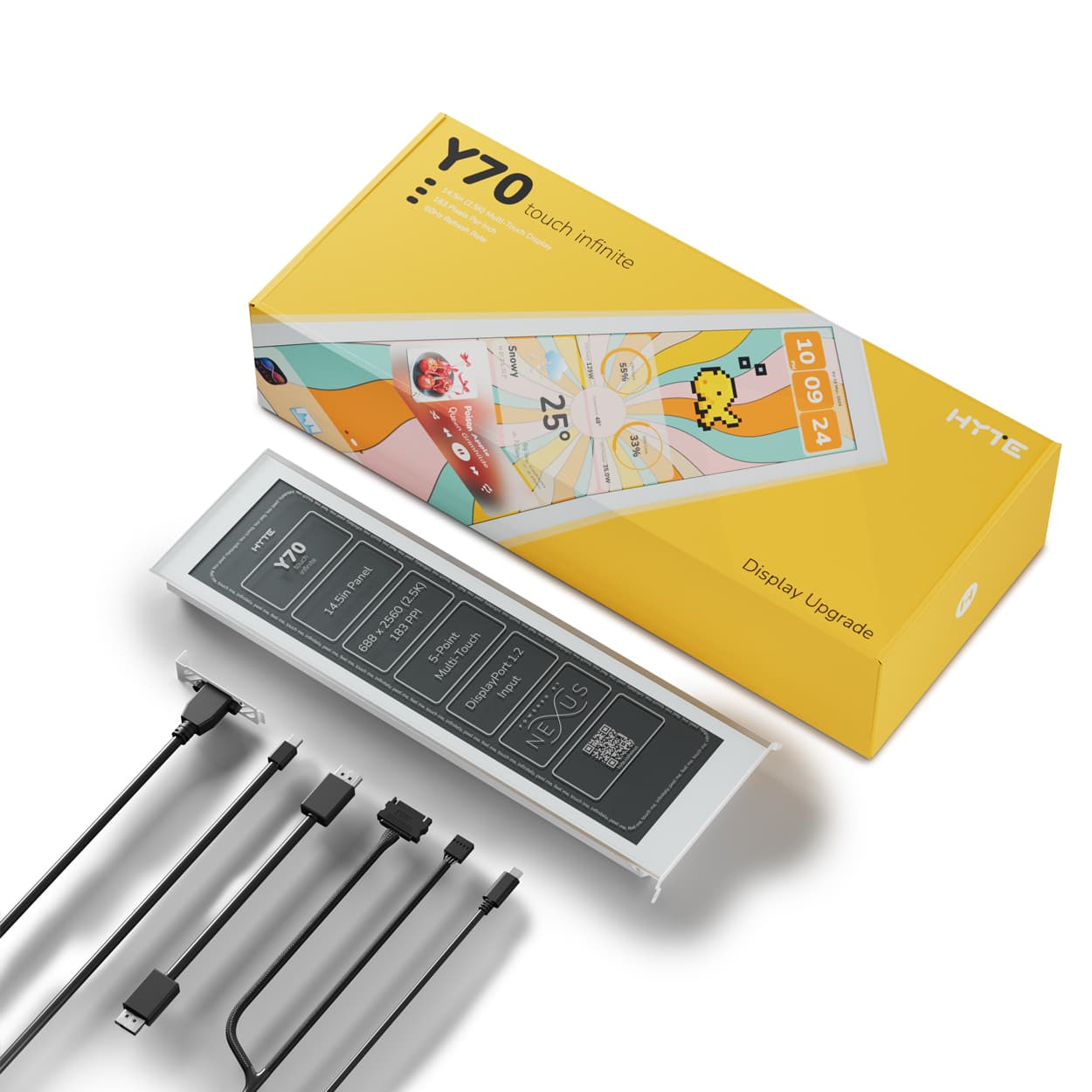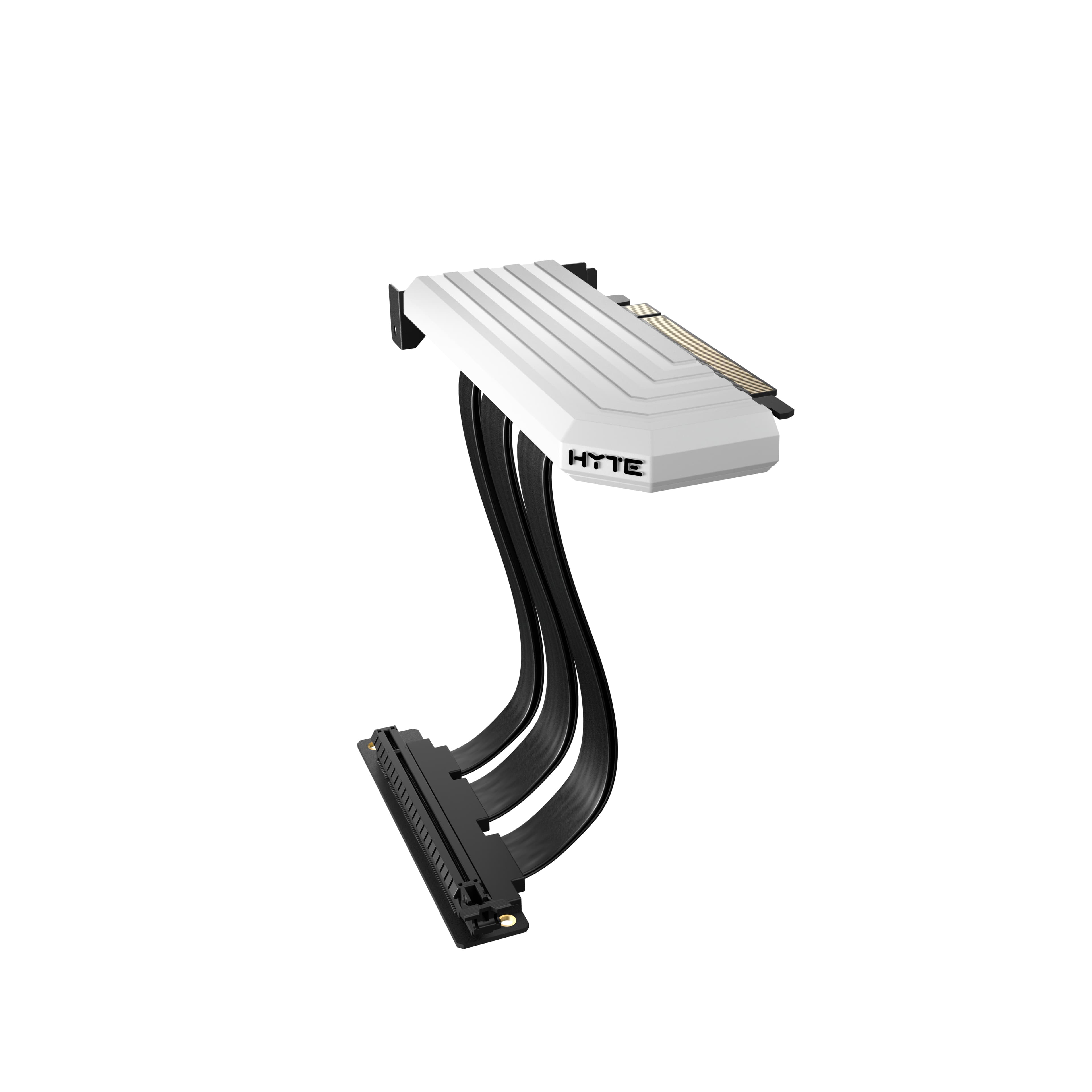PC Hardware
PC Components & Hardware
At HYTE, we push the envelope when it comes to your PC experience. Our goal is to make our products effortlessly interactive, in ways that will change the way you look at building, gaming, and everything else you do with your tech. But we don't stop there; why force a specific "gamer" or "professional" style when your PC is as powerful and unique as you are? That's why we're committed to creating products that have artistic form and expert function, always keeping an eye out for first-time builders and enthusiasts alike.
Selecting Components for Your Build
Building a PC for the first time is a scary journey. There’s so many things that go into choosing parts such as budget, computing strength, aesthetics, and table space. The parts you buy depend on what type of computer you plan on building, whether that’s a gaming or productivity PC. It’s important to choose the right components that work together to power your computing needs.
Computer CPU Processors: Enhance the Usage of a Computer
The Central Processing Unit, aka the CPU, is the brain of the PC. The Processor is responsible for performing most of the major day-to-day functions on a PC. The clock speed and number of cores and threads are generally the most important specs to pay attention to. A faster CPU will improve the performance of individual processes, and having more cores and threads gives the system better multitasking capability.
Motherboards: A Home for System Components
The electronic backbone of the PC, bridges communication between components and provides most of the external connectivity.
The motherboard is likely the most intimidating component when it comes to choosing the right model, as it has very little impact on system performance and yet has a wide range of costs. Connectivity and processor support should be the two main factors for consideration. Make sure the board has all the ports needed to support the other components in the system.
Video & Graphic Cards: Enhance Gaming Performance
Graphics Processing Unit, Graphics Card, or GPU. Similar to the CPU but focused on producing graphics and video output. The performance of the GPU directly influences the PC’s gaming capability. Higher end cards enable higher frame rates, higher resolutions, and higher graphical settings. Care must be taken to ensure that the video card is properly cooled, has enough power from the power supply, and can fit into the case.
Hard Drives & Solid State Drives: Computer Storage Space
The PC’s long-term storage, holding the operating system files, installed programs, and other user data.
Faster primary storage results in overall improved system responsiveness, particularly in boot times and launching programs. Capacity is also important to consider to ensure there is enough space to install all the user’s programs and hold other data. Secondary storage can also be added to a PC to supplement that capacity.
RAM: Increase Processing Speeds With Dynamic Memory
The PC’s short-term storage, holding onto information that is actively being accessed by programs.
Memory capacity is important for multitasking and gaming workloads, it is crucial to make sure the system has enough total memory to support any and all programs the PC will be running. Memory speed will also increase overall system responsiveness and has a minor impact on overall performance.
PC Cases: House Computers & Protect PC Parts
The enclosure that holds all of the system’s parts together and keeps them protected.
The PC case is one of the most subjective of all the components. A very large contributing factor is the user’s own aesthetic preference. After all, it will be the part of the system that is most visible at all times. Factors such as hardware support, cooling performance, and ease of maintenance are also important factors to consider.
Case Fans
Having a solid set of case fans help bring in cool air and push out the warm air. You want to have a steady flow of cool air going through your PC to ensure the best performance from your PC. It’s important to keep your thermals low to avoid throttling or long term damage to your components.
PCIe 4.0
PCIe 4.0 is the fourth generation of the Peripheral Component Interconnect Express. This is one of the most common motherboard interfaces for GPUs, HDD adapters, SSDs, and Wi-Fi hardware connections. Our PCIe 4.0 Luxury Riser Cable is PCIe 4.0 compatible and allows you to vertically mount your GPU while keeping that full x16 bandwidth.
FAQ
What are the Most Important Gaming PC Parts?
The most important part of a PC for gaming is the graphics card (GPU). The performance of the GPU directly influences the PC’s gaming capability. You need this in order to push the frames that you need, especially for fast-paced competitive games. No matter how strong your CPU is, if you don’t have the GPU to match, you won’t hit the gaming performance you want.
What are the three main types of PC hardware?
The 3 main types of hardware that you can find are input/output devices, processing devices, and storage devices. Input/output devices are hardware that input and export raw data from the computer. The processing devices are any type of equipment that help the computer process raw data instructions into working information. Finally, the storage devices help the computer store the data and information that has been processed and saved.
What are the 7 major components of a computer system?
The 7 major components of a computer system include the motherboard, processor (CPU), graphics card (GPU), memory (RAM), storage, input systems, and output systems. These 7 major components work together to ensure the PC properly runs.
How do you pick the best PC components?
The first step before even picking is figuring out what your computing needs are. Once you decide on that, you can do more research on what parts are best for your online lifestyle. If you know you’ll be gaming more, you benefit more from a really good graphics card. If you’re using your PC for content creation and rendering, then you need strong computing power with a quality CPU. The best components for your lifestyle will be the best components for your PC.
How to Check Your PC Hardware?
You can check your hardware components in your computer’s system settings. Depending on the operating system (OS) you use, you can find almost all your PC’s specifications including the CPU, GPU, and RAM.
Why are Cooling Systems Important for PC Hardware?
Effective cooling systems regulate your gaming computer’s temperature for the best performance and to make your PC components last longer.
This website uses cookies to ensure you get the best experience on our website. You may view our Privacy Policy here
